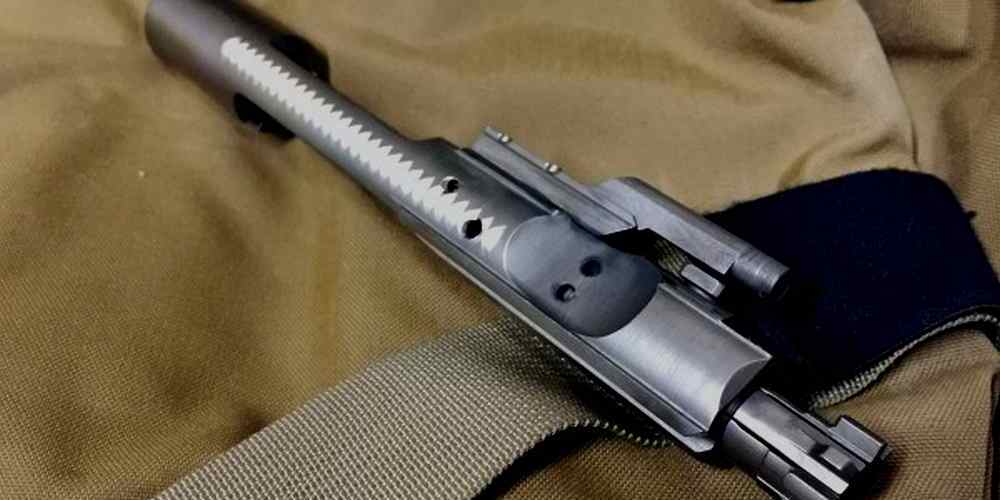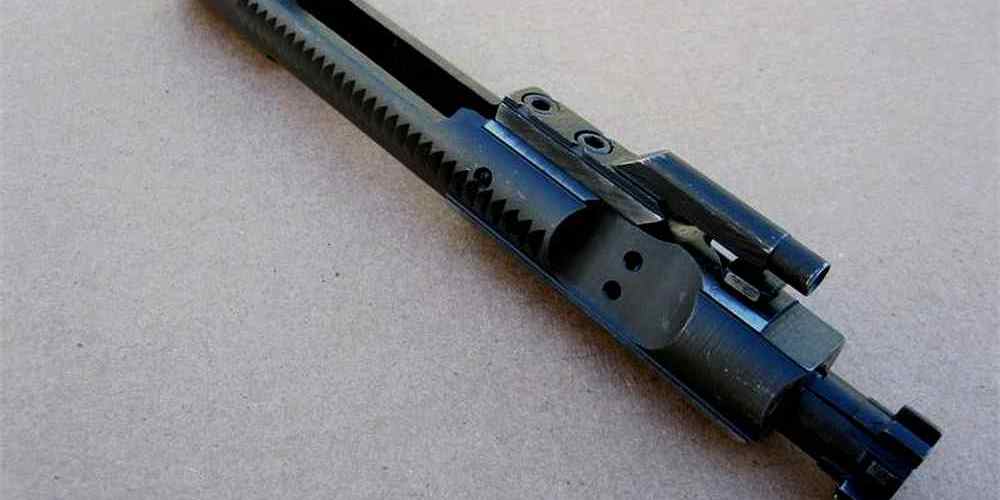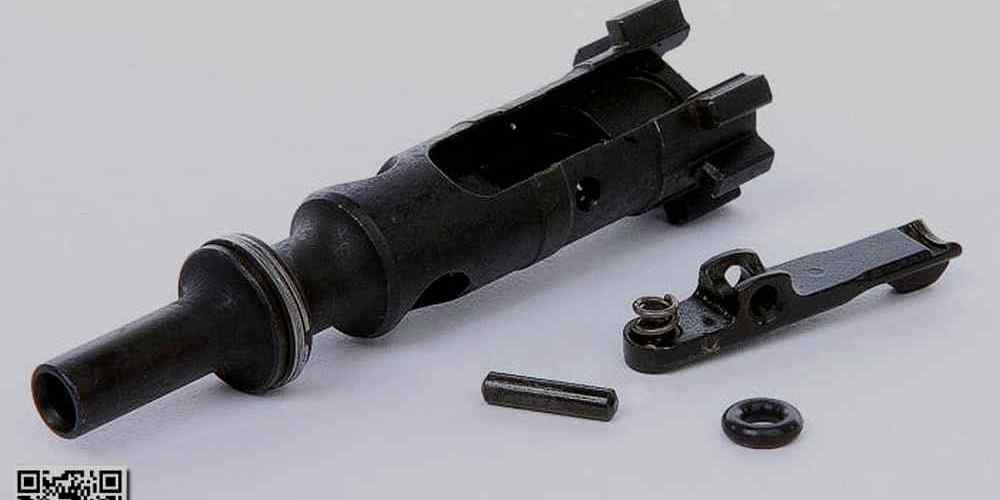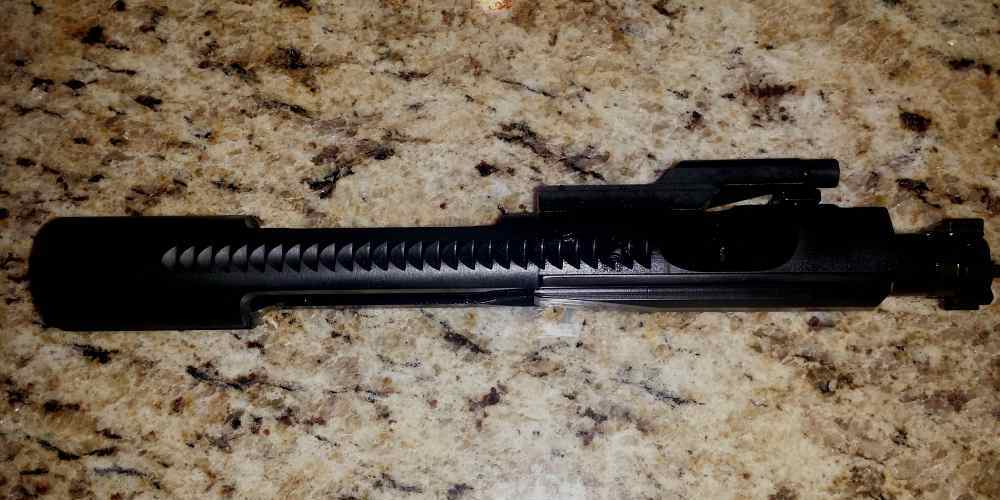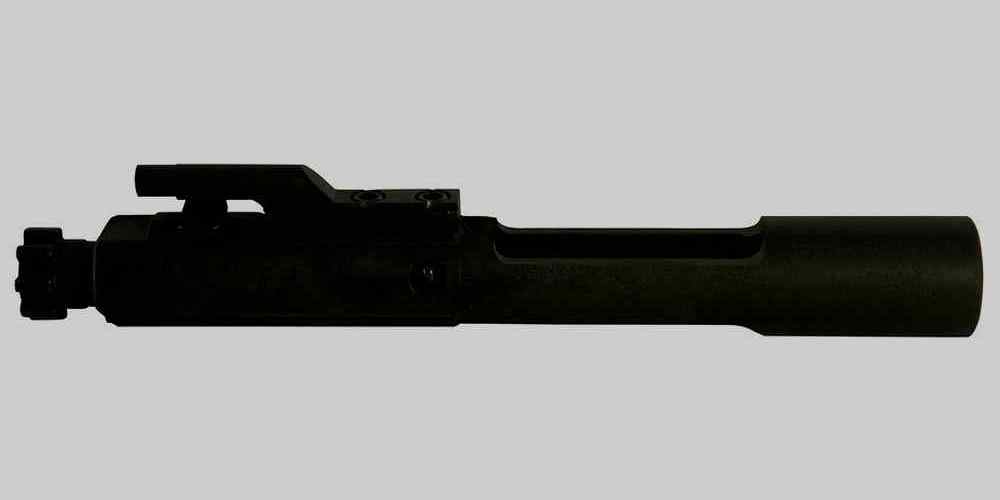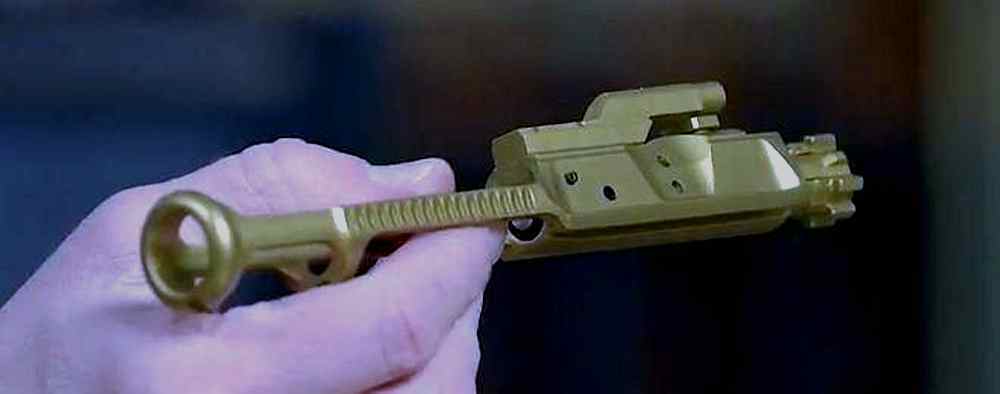“Enhanced performance, durability, and reliability – choose the right coating for your AR15 BCG.”
Pros and Cons of Phosphate Coating on AR15 BCG
When it comes to choosing the right coating for your AR15 bolt carrier group (BCG), there are several options to consider. One of the most common coatings used on AR15 BCGs is phosphate. Phosphate coating is a type of chemical conversion coating that provides a durable and corrosion-resistant finish. In this article, we will explore the pros and cons of phosphate coating on AR15 BCGs.
One of the main advantages of phosphate coating is its affordability. Phosphate coating is a cost-effective option for those looking to protect their AR15 BCG from corrosion and wear. Additionally, phosphate coating provides a matte finish that is aesthetically pleasing to many gun owners.
Another benefit of phosphate coating is its ability to hold lubricants well. This can help reduce friction and wear on the BCG, leading to smoother operation and increased reliability. Phosphate coating also provides a good base for applying additional finishes, such as paint or Cerakote.
However, phosphate coating does have some drawbacks. One of the main disadvantages of phosphate coating is its susceptibility to rust. While phosphate coating does provide some level of corrosion resistance, it is not as effective as other coatings such as nitride or nickel boron. This means that AR15 BCGs with phosphate coating may require more frequent maintenance to prevent rust and corrosion.
Additionally, phosphate coating can wear off over time, especially in high-friction areas of the BCG. This can lead to increased friction and wear on the BCG, potentially affecting its performance and reliability. Some gun owners may find themselves needing to reapply phosphate coating or switch to a more durable coating option.
In conclusion, phosphate coating is a cost-effective option for protecting your AR15 BCG from corrosion and wear. While it may not offer the same level of corrosion resistance as other coatings, phosphate coating can still provide adequate protection for most gun owners. However, it is important to keep in mind the potential for rust and wear with phosphate coating, and to perform regular maintenance to ensure the longevity of your AR15 BCG.
Overall, phosphate coating is a solid choice for those looking for a budget-friendly option for their AR15 BCG. With proper care and maintenance, phosphate-coated BCGs can provide reliable performance and protection for years to come.
Benefits of Nitride Coating for AR15 BCG
When it comes to choosing the right coating for your AR15 bolt carrier group (BCG), there are several options available on the market. One popular choice among gun enthusiasts is the nitride coating, also known as Melonite or QPQ. Nitride coating offers a number of benefits that make it a top choice for many gun owners.
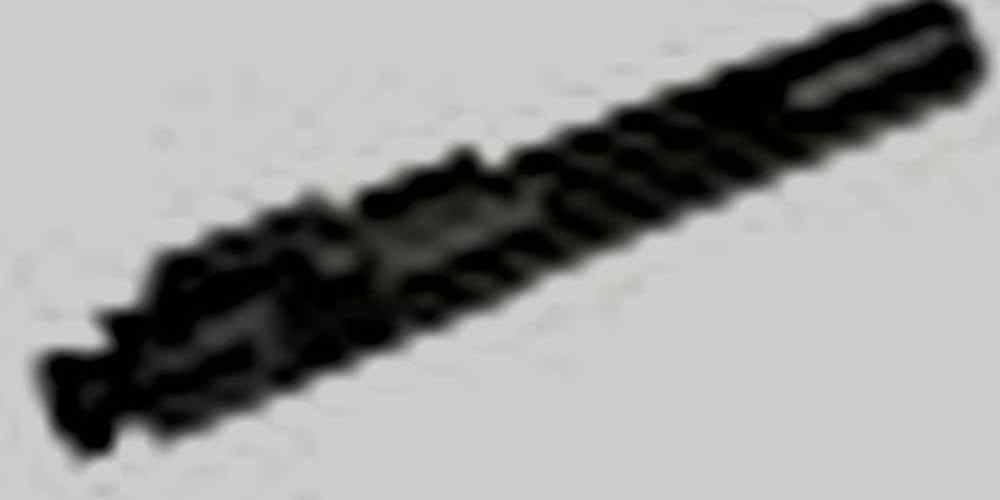
One of the main advantages of nitride coating is its durability. Nitride coating is a surface treatment that penetrates the metal, creating a hard, wear-resistant layer that is highly resistant to corrosion and abrasion. This means that your AR15 BCG will be able to withstand the rigors of regular use without showing signs of wear and tear. In addition, nitride coating has a low coefficient of friction, which helps to reduce friction between moving parts and improve overall performance.
Another benefit of nitride coating is its ease of maintenance. Unlike some other coatings, nitride coating does not require any special cleaning or maintenance procedures. Simply wipe down your AR15 BCG with a clean cloth and it will be good to go. This makes nitride-coated BCGs a convenient option for gun owners who want to spend more time shooting and less time cleaning their firearms.
In addition to its durability and low maintenance requirements, nitride coating also offers improved lubricity. The low coefficient of friction of nitride-coated surfaces means that your AR15 BCG will cycle smoothly and reliably, even in adverse conditions. This can help to improve the overall performance of your firearm and ensure that it functions properly when you need it most.
Nitride coating is also known for its excellent heat resistance. The hard, wear-resistant layer created by the nitride coating can withstand high temperatures without degrading, making it ideal for use in high-performance firearms like the AR15. This heat resistance helps to prevent the BCG from overheating during rapid fire or extended shooting sessions, ensuring that your firearm remains reliable and accurate.
Overall, nitride coating offers a number of benefits that make it a top choice for AR15 BCGs. Its durability, low maintenance requirements, improved lubricity, and heat resistance all contribute to its popularity among gun owners. If you’re looking for a high-quality coating that will enhance the performance and longevity of your AR15 BCG, nitride coating is definitely worth considering.
Advantages of Nickel Boron Coating on AR15 BCG
When it comes to choosing a coating for your AR15 bolt carrier group (BCG), there are several options available on the market. One popular choice among gun enthusiasts is nickel boron coating. This advanced coating offers a number of advantages over traditional phosphate and nitride coatings, making it a top choice for many shooters.
One of the main advantages of nickel boron coating is its durability. Nickel boron is a hard, slick material that is highly resistant to wear and corrosion. This means that your BCG will last longer and require less maintenance over time. With nickel boron coating, you can expect your BCG to perform reliably for thousands of rounds without showing signs of wear.
In addition to its durability, nickel boron coating also offers improved lubricity. The slick surface of nickel boron reduces friction between moving parts, resulting in smoother operation and increased reliability. This can be especially beneficial in high-stress situations where every second counts. With nickel boron coating, you can trust that your BCG will function flawlessly when you need it most.
Another advantage of nickel boron coating is its ease of cleaning. The slick surface of nickel boron makes it easy to wipe away carbon buildup and fouling, keeping your BCG clean and functioning properly. This can save you time and effort when it comes to maintaining your firearm, allowing you to spend more time on the range and less time cleaning.
Nickel boron coating also offers improved heat resistance compared to other coatings. This can be particularly important in high-volume shooting situations where your BCG can become extremely hot. With nickel boron coating, you can trust that your BCG will continue to function reliably even under intense heat, giving you peace of mind during extended shooting sessions.
Overall, nickel boron coating offers a number of advantages over traditional phosphate and nitride coatings. Its durability, lubricity, ease of cleaning, and heat resistance make it a top choice for shooters looking to maximize the performance of their AR15 BCG. Whether you are a competitive shooter, a law enforcement officer, or a recreational gun enthusiast, nickel boron coating can help you get the most out of your firearm.
In conclusion, nickel boron coating is a superior choice for AR15 BCGs due to its durability, lubricity, ease of cleaning, and heat resistance. If you are looking to upgrade your BCG, consider investing in nickel boron coating for improved performance and reliability. With nickel boron coating, you can trust that your BCG will continue to function flawlessly for years to come.
Durability Comparison of Phosphate, Nitride, and Nickel Boron Coatings
When it comes to choosing the right coating for your AR15 bolt carrier group (BCG), there are several options available on the market. The three most common coatings are phosphate, nitride, and nickel boron. Each coating has its own set of benefits and drawbacks, so it’s important to understand the differences between them before making a decision.
Phosphate coating, also known as parkerizing, is one of the oldest and most widely used coatings for AR15 BCGs. It is a relatively inexpensive option that provides good corrosion resistance and lubricity. However, phosphate coatings can wear off over time, especially in high-friction areas like the bolt lugs and cam pin track. This can lead to increased friction and wear on the BCG, which may affect its overall performance and longevity.
Nitride coating, also known as melonite or salt bath nitriding, is a newer coating that has gained popularity in recent years. Nitride coatings are extremely hard and durable, providing excellent wear resistance and corrosion protection. They also have a low coefficient of friction, which helps to reduce friction and heat buildup during operation. Nitride coatings are more expensive than phosphate coatings, but they offer superior performance and longevity in comparison.
Nickel boron coating is another popular option for AR15 BCGs. Nickel boron coatings are extremely slick and have a very low coefficient of friction, which helps to reduce wear and fouling on the BCG. They also provide excellent corrosion resistance and are easy to clean. However, nickel boron coatings are the most expensive option of the three, making them less accessible to budget-conscious shooters.
In terms of durability, nitride coatings are generally considered to be the most durable option for AR15 BCGs. They offer superior wear resistance and corrosion protection compared to phosphate and nickel boron coatings. Nitride coatings are also less likely to wear off over time, ensuring consistent performance and reliability over the long term.
Phosphate coatings, while less durable than nitride coatings, still offer good corrosion resistance and lubricity for AR15 BCGs. They are a cost-effective option for shooters on a budget who still want a reliable coating for their BCG. However, it’s important to keep in mind that phosphate coatings may require more frequent maintenance and reapplication to maintain their effectiveness.
Nickel boron coatings, while extremely slick and corrosion-resistant, are not as durable as nitride coatings. They can wear off over time, especially in high-friction areas, which may affect the overall performance of the BCG. Nickel boron coatings are best suited for shooters who prioritize ease of cleaning and smooth operation over long-term durability.
In conclusion, when it comes to choosing a coating for your AR15 BCG, it’s important to consider your priorities and budget. Nitride coatings offer the best combination of durability, performance, and longevity, making them a popular choice among shooters. Phosphate coatings are a more budget-friendly option that still provides good corrosion resistance and lubricity. Nickel boron coatings are extremely slick and easy to clean but may not offer the same level of durability as nitride coatings. Ultimately, the best coating for your AR15 BCG will depend on your individual needs and preferences.
Performance Differences Between Phosphate, Nitride, and Nickel Boron Coated AR15 BCGs
When it comes to choosing the right coating for your AR15 bolt carrier group (BCG), there are several options available on the market. The three most common coatings are phosphate, nitride, and nickel boron. Each coating has its own set of benefits and drawbacks, so it’s important to understand the differences between them before making a decision.
Phosphate coating is the most traditional and widely used coating for AR15 BCGs. It is a relatively inexpensive option that provides good corrosion resistance and lubricity. Phosphate coating is also known for its durability and ability to hold up well under high temperatures. However, phosphate coating does have its drawbacks. It can be prone to wear over time, especially in high-friction areas, and may require more frequent cleaning and maintenance compared to other coatings.
Nitride coating, also known as Melonite or QPQ, is a newer coating option that has gained popularity in recent years. Nitride coating is a surface treatment that penetrates the metal, creating a hard and durable finish. This coating provides excellent corrosion resistance and wear resistance, making it a great choice for high-performance applications. Nitride coating also offers improved lubricity, which can help reduce friction and increase the overall lifespan of the BCG. However, nitride coating can be more expensive than phosphate coating, which may be a consideration for budget-conscious shooters.
Nickel boron coating is a premium option that offers the highest level of performance and durability. Nickel boron is a self-lubricating coating that provides excellent corrosion resistance and wear resistance. This coating is also known for its smooth finish, which can help reduce friction and improve overall reliability. Nickel boron-coated BCGs are easy to clean and maintain, making them a popular choice for competitive shooters and enthusiasts who demand the best performance from their firearms. However, nickel boron coating is the most expensive option of the three coatings, which may be a limiting factor for some shooters.
In terms of performance, each coating has its own strengths and weaknesses. Phosphate coating is a reliable and cost-effective option that provides good corrosion resistance and durability. Nitride coating offers improved wear resistance and lubricity, making it a great choice for high-performance applications. Nickel boron coating provides the highest level of performance and reliability, but comes at a higher price point.
Ultimately, the best coating for your AR15 BCG will depend on your specific needs and budget. If you’re looking for a budget-friendly option that still offers good performance, phosphate coating may be the way to go. If you’re willing to invest a bit more for improved wear resistance and lubricity, nitride coating is a solid choice. And if you want the best of the best in terms of performance and reliability, nickel boron coating is the way to go.
No matter which coating you choose, it’s important to properly maintain and care for your AR15 BCG to ensure optimal performance and longevity. Regular cleaning and lubrication will help extend the lifespan of your BCG, regardless of the coating you choose. By understanding the differences between phosphate, nitride, and nickel boron coatings, you can make an informed decision that will help you get the most out of your AR15.





